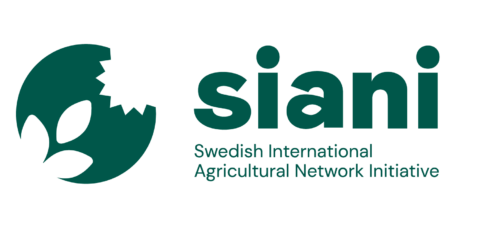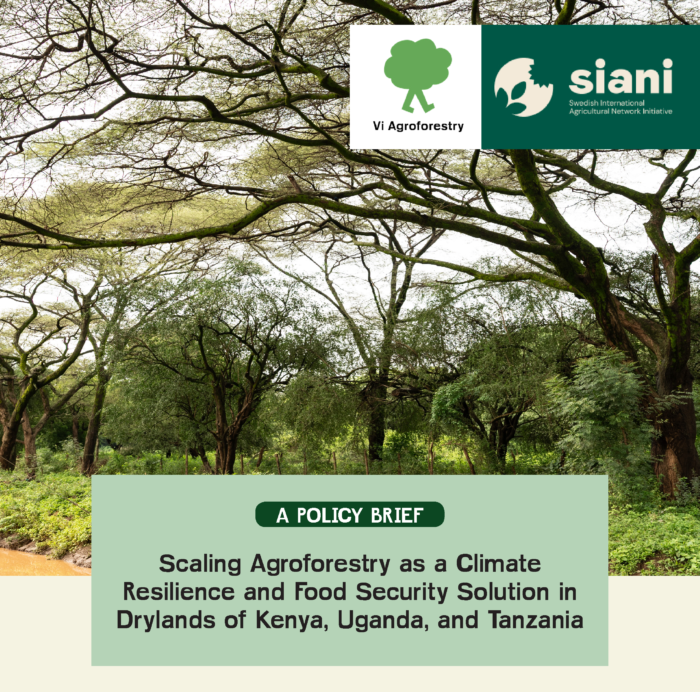The East African Dryland Agroforestry Expert Group is addressing the pressing challenges of food and nutrition security in the dryland regions of East Africa. These areas face unpredictable rainfall patterns, prolonged droughts, intense flooding, higher temperatures, and conflicts over pasture and water, all exacerbated by climate change.
The expert group brings together 15 experts from civil society, ministries, academia, practitioners, and youth organizations in Kenya, Tanzania, and Uganda. By fostering internal learning exchanges, engaging with local farming and agropastoralist organizations, and connecting with international networks, the group aims to promote sustainable agroforestry practices and influence policies for better land management.
The group will work throughout 2025 to highlight the urgent situation for communities dependent on natural resources for their livelihoods and advance policies, principles, and practices to promote agroforestry and sustainable land management. This initiative will span local, East African, Swedish, and global dialogues on sustainable food systems, aiming to transform food systems and enhance biodiversity conservation in East African drylands.
The project will generate knowledge products and solutions, enhancing the visibility and credibility of the participating organizations as experts in dryland agroforestry. It is implemented with support from the Swedish International Agricultural Network Initiative, SIANI.

Project name: East African Dryland Agroforestry Expert Group
Brief context: Dryland regions in East Africa face significant challenges in food and nutrition security due to harsh climatic conditions and unsustainable land management practices.
Aim: The project aims to promote sustainable agroforestry practices in dryland regions to improve food security and land management. It involves internal learning exchanges, outreach to farmers and pastoralists, and engagement with international networks to influence policies and practices.
Duration: October 2024 – December 2025
Locations: Kenya, Tanzania, Uganda
Target group: The project targets farmers, pastoralists, and policymakers in dryland regions of East Africa.
Policy Brief: Scaling Agroforestry for Climate Resilience and Food Security in East Africa’s Drylands

East Africa’s drylands face a triple crisis: climate change, food insecurity, and governance gaps in natural resource management. Recurrent droughts, land degradation, and water scarcity are fueling conflicts and displacing communities—threatening livelihoods and regional stability.
Our new policy brief, Scaling Agroforestry as a Climate Resilience and Food Security Solution in Drylands of Kenya, Uganda, and Tanzania, presents agroforestry as a proven, nature-based solution. Evidence shows it can:
✔ Increase crop yields by 30–58% while restoring soils in just five years
✔ Reduce conflicts by creating shared economic incentives for sustainable land use
✔ Empower women and marginalised groups through secure land rights and diversified incomes
Developed with 15+ experts from governments, academia, and civil society, the brief offers 5 key policy actions to scale agroforestry, including:
· Strengthening regional collaboration through an East African Agroforestry Platform
· Directing funding and incentives to dryland communities
· Integrating traditional knowledge into farmer training programs
Why This Matters: With 80% of Kenya’s land and 30% of Uganda/Tanzania’s territories classified as drylands, agroforestry is critical for climate adaptation, food security, and peacebuilding.
Download the full brief here: POLICY BRIEF 2025 DryLands East Africa Agroforestry by SIANI & Vi Agroforestry to explore case studies (like Farmer-Managed Natural Regeneration in Kitui) and actionable recommendations for policymakers.
Developed by the East Africa Drylands Agroforestry Expert Group with support from SIANI and Vi Agroforestry.
